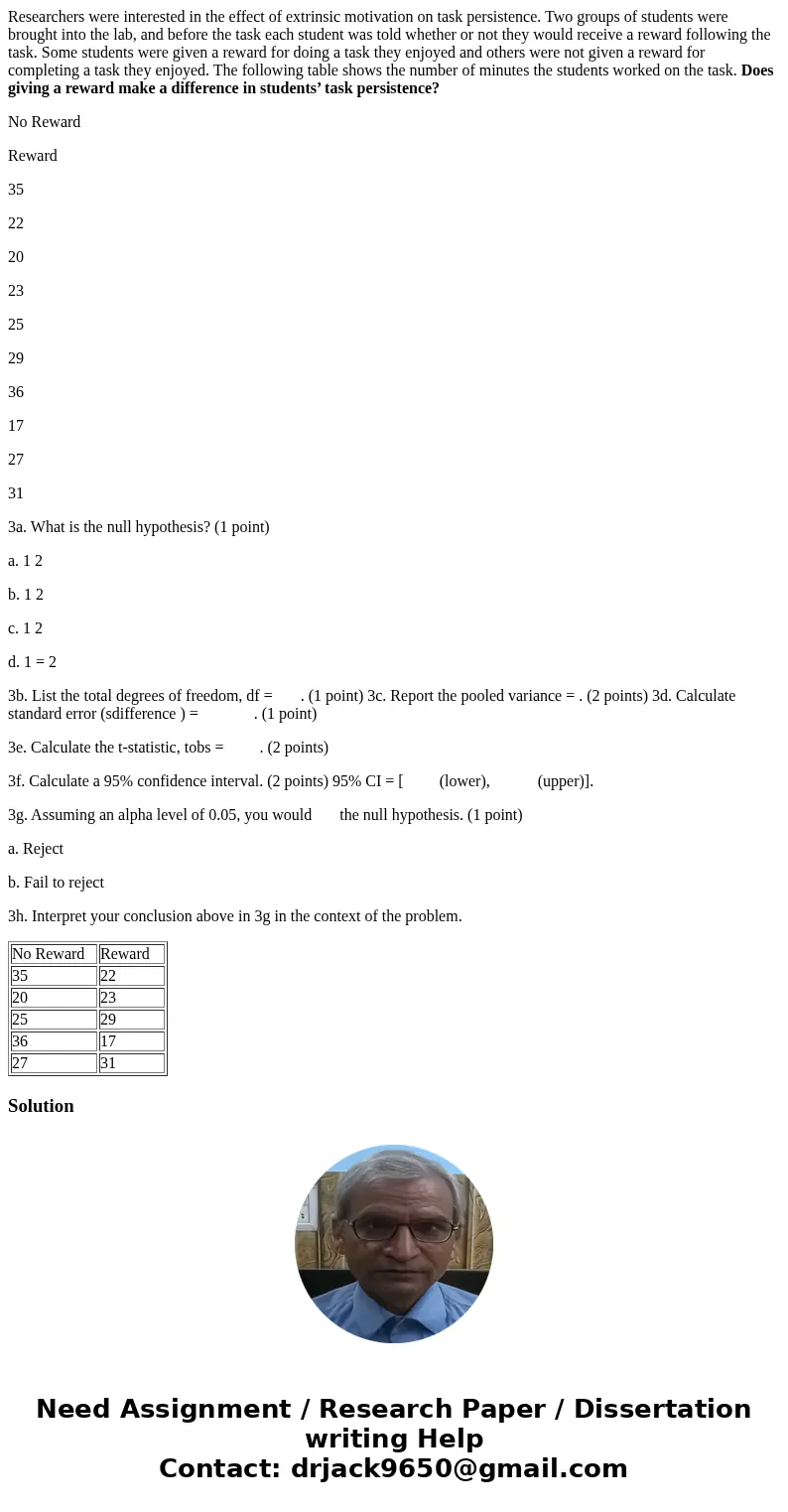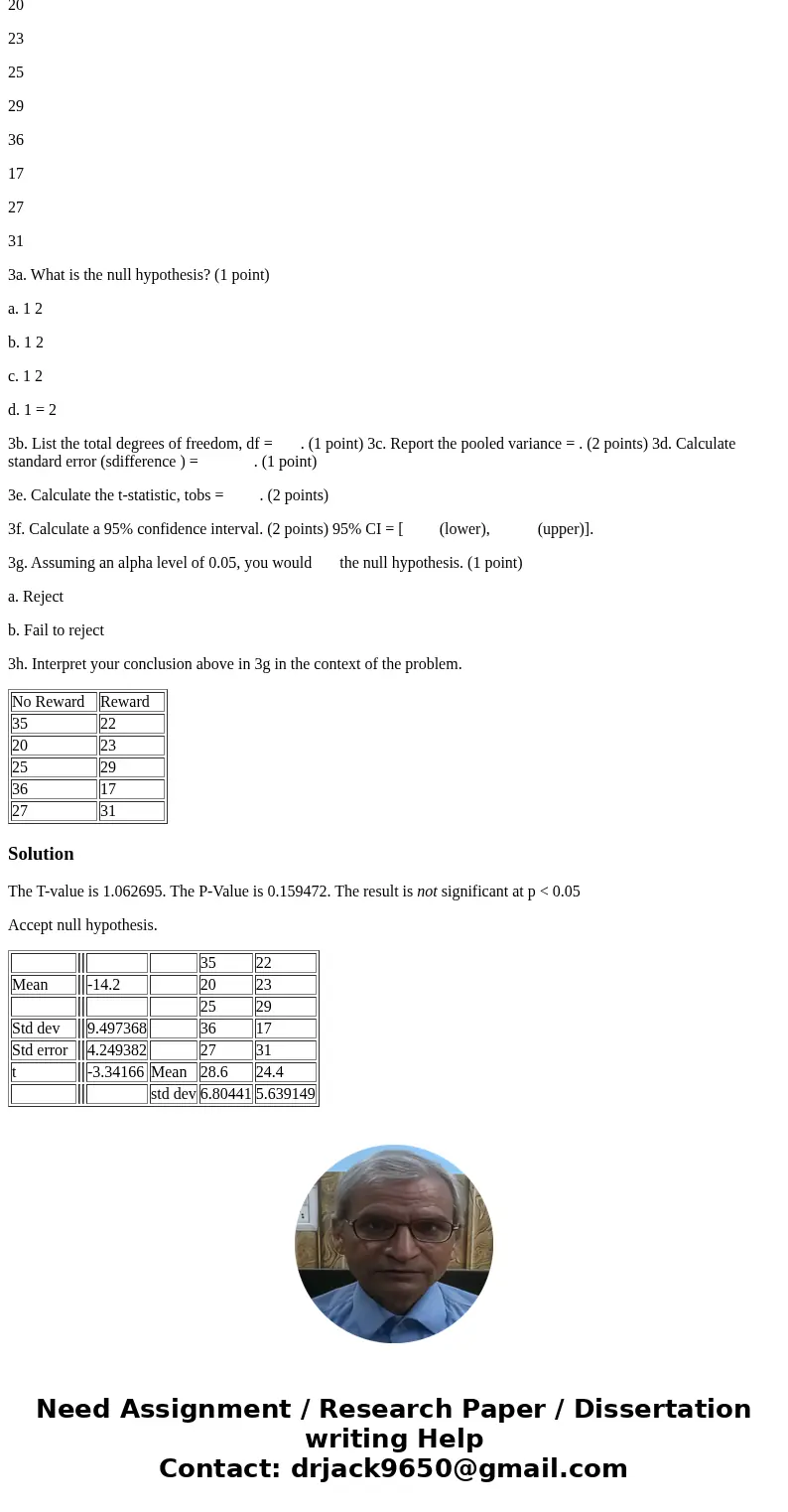Researchers were interested in the effect of extrinsic motiv
Researchers were interested in the effect of extrinsic motivation on task persistence. Two groups of students were brought into the lab, and before the task each student was told whether or not they would receive a reward following the task. Some students were given a reward for doing a task they enjoyed and others were not given a reward for completing a task they enjoyed. The following table shows the number of minutes the students worked on the task. Does giving a reward make a difference in students’ task persistence?
No Reward
Reward
35
22
20
23
25
29
36
17
27
31
3a. What is the null hypothesis? (1 point)
a. 1 2
b. 1 2
c. 1 2
d. 1 = 2
3b. List the total degrees of freedom, df = . (1 point) 3c. Report the pooled variance = . (2 points) 3d. Calculate standard error (sdifference ) = . (1 point)
3e. Calculate the t-statistic, tobs = . (2 points)
3f. Calculate a 95% confidence interval. (2 points) 95% CI = [ (lower), (upper)].
3g. Assuming an alpha level of 0.05, you would the null hypothesis. (1 point)
a. Reject
b. Fail to reject
3h. Interpret your conclusion above in 3g in the context of the problem.
| No Reward | Reward |
| 35 | 22 |
| 20 | 23 |
| 25 | 29 |
| 36 | 17 |
| 27 | 31 |
Solution
The T-value is 1.062695. The P-Value is 0.159472. The result is not significant at p < 0.05
Accept null hypothesis.
| 35 | 22 | |||||
| Mean | -14.2 | 20 | 23 | |||
| 25 | 29 | |||||
| Std dev | 9.497368 | 36 | 17 | |||
| Std error | 4.249382 | 27 | 31 | |||
| t | -3.34166 | Mean | 28.6 | 24.4 | ||
| std dev | 6.80441 | 5.639149 |


 Homework Sourse
Homework Sourse